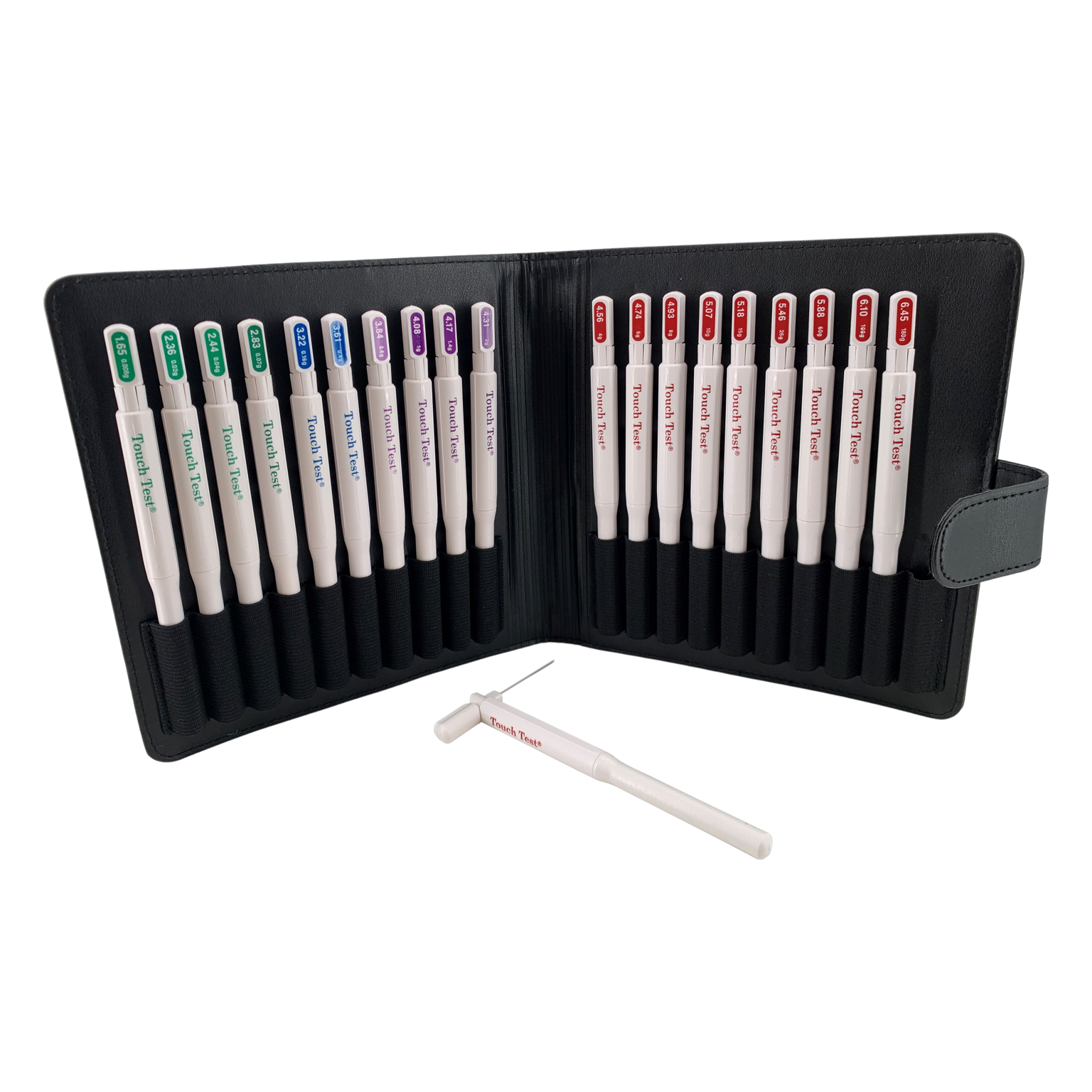Please specify the quantity of product(s).



Touch Test Sensory Probes
| Item | Product | Price | QTY |
|---|---|---|---|
| 58011 | Touch Test Sensory Evaluator, Kit of 20 | Login | |
| 58021 | Replacement Evaluator 1.65 | Login | |
| 58022 | Replacement Evaluator 2.36 | Login | |
| 58023 | Replacement Evaluator 2.44 | Login | |
| 58024 | Replacement Evaluator 2.83 | Login | |
| 58025 | Replacement Evaluator 3.22 | Login | |
| 58026 | Replacement Evaluator 3.61 | Login | |
| 58027 | Replacement Evaluator 3.84 | Login | |
| 58028 | Replacement Evaluator 4.08 | Login | |
| 58029 | Replacement Evaluator 4.17 | Login | |
| 58030 | Replacement Evaluator 4.31 | Login | |
| 58031 | Replacement Evaluator 4.56 | Login | |
| 58032 | Replacement Evaluator 4.74 | Login | |
| 58033 | Replacement Evaluator 4.93 | Login | |
| 58034 | Replacement Evaluator 5.07 | Login | |
| 58035 | Replacement Evaluator 5.18 | Login | |
| 58036 | Replacement Evaluator 5.46 | Login | |
| 58037 | Replacement Evaluator 5.88 | Login | |
| 58038 | Replacement Evaluator 6.10 | Login | |
| 58039 | Replacement Evaluator 6.45 | Login | |
| 58040 | Replacement Evaluator 6.65 | Login | |
| 57816 | Ugo Basile Grid Platform for Plantar Stimulation | Login |
Semmes-Weinstein Von Frey Aesthesiometer for touch assessment
Features
- Set of 20 monofilaments based on the Semmes-Weinstein monofilament set
- Features retractable filaments to protect the filament
- Allows the researcher to carry a few in a pocket
The Semmes-Weinstein monofilaments provide an approximate logarithmic scale of actual force, and a linear scale of perceived intensity. They have a long history of effective use in clinical settings, and can be used to diagnose pathologies of hyper- or hypo-aesthesia. Subsets within the set of 20 probes distinguish pathologies on different parts of the body (foot, hand, lip, cheek,etc.).
Operating Principle
When the tip of a fiber of given length and diameter is pressed against the skin at right angles, the force of application increases as long as the researcher continues to advance the probe, until the fiber bends. After the fiber bends, continued advance creates more bend, but not more force of application. This makes it possible for the researcher using a hand-held probe to apply a reproducible force, within a wide tolerance, to the skin surface.
Pre-Clinical Use
Rodents exhibit a paw withdrawal reflex when the paw is unexpectedly touched. The Touch Test™ Sensory Evaluator can be used on the Plantar surfaces of the foot of a rat or mouse. The animal indicates sensation by pulling back its paw. Individual filaments available.
Optional Grid Platform, Product Number 57816, also available!